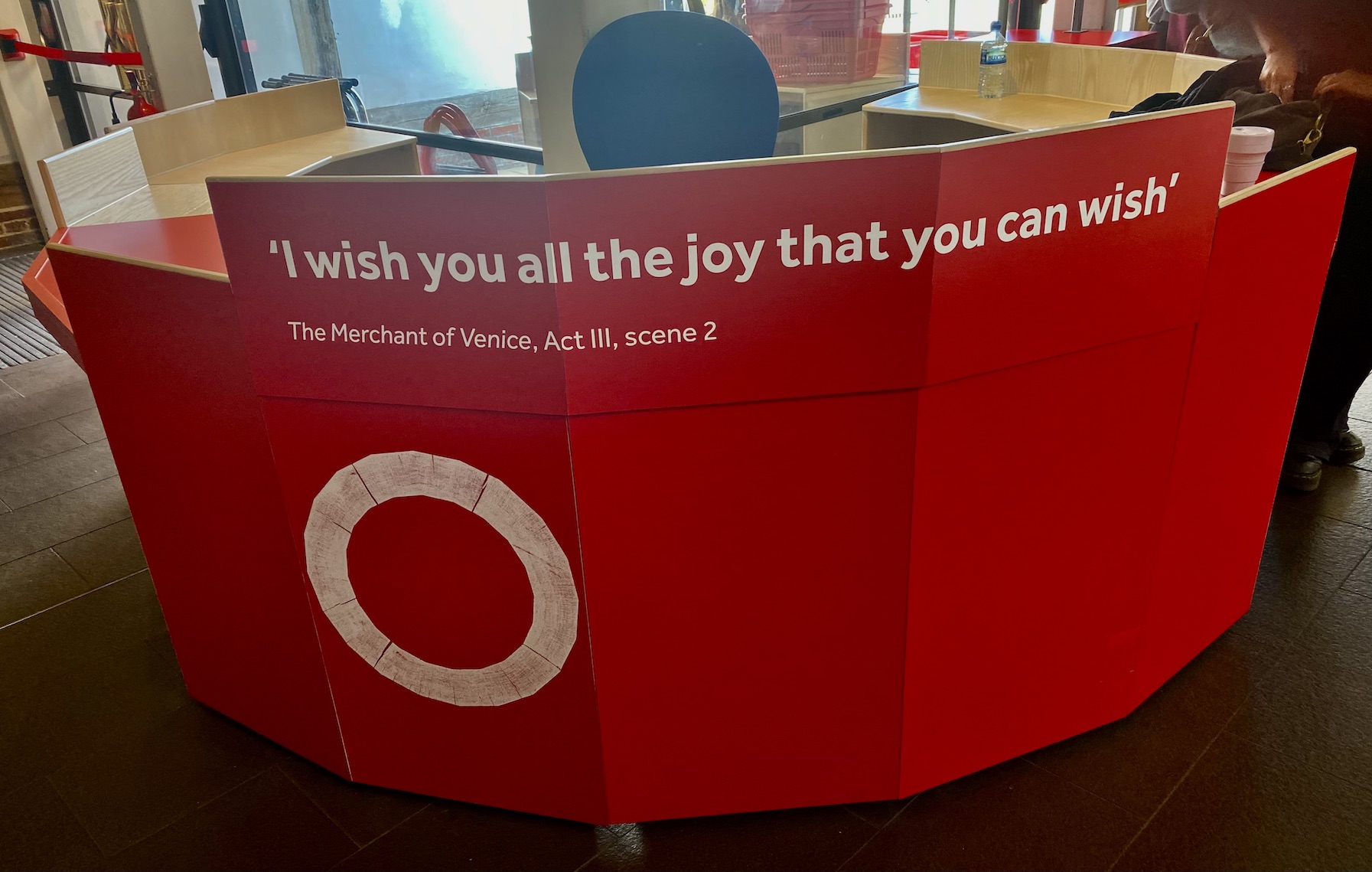Last month I wrote about a relationship moment from a vacation trip my wife and I took with our grandson Nathan. It was a quote from Shakespeare we found in a museum. It is about what we wish for.
“I wish you all the joy that you can wish.”
I can’t seem to shake this line from his play, The Merchant of Venice. I didn’t say much about it a few weeks ago, so I thought if I commented on it further now so I could move on to other things. Does this ever happen to you, where a thought or idea grabs you and rattles around in your head or heart for days?
When this happens to me I find it helpful to put my thoughts into words that I either write or speak. The latter requires someone to listen, which can be hard to come by at times. I think you know what I’m talking about. So for now, I’ll write.
Why I love this line from Shakespeare
“I wish you…” is such a kind, compassionate, and generous expression of care for another person. It’s not I wish for me. It’s I wish for YOU. The opposite of a self-centered approach to life where we think so often of what we wish for ourselves. We dream. We hope. For ourselves. At least I do.
When I was in college I had a very boring summer factory. I would drill holes into small aluminum castings 8 to 10 hours a day for weeks on end. What I wished for then was for summer to end so I could go back to school which was far more interesting. I wished for the day I would graduate and get a teaching job. Added to this, I wished for a classroom of students as eager to learn about history as I was to teach them.
But I never knew what my factory co-workers wished for. Did Fritz ever wish to return to his native Germany? Did Carl wish to bring his parents over from Latvia? And then there was Harlow. Did he wish he could retire soon?
I don’t know. It never occurred to me to ask. I wish I would have. It would have helped me connect better with them and undoubtedly would have made my summer factory job far less boring.
A biblical example of what we wish for
The story of a woman in the Bible named Hannah illustrates the power of wishing for someone what they wish for themselves. It’s found in 1 Samuel 1:9-18 where Hannah deeply desires to have a child. It’s been consuming her for a long time. In this story, notice how Eli, the high priest, responds to her.
Once after a sacrificial meal at Shiloh, Hannah got up and went to pray. Eli the priest was sitting at his customary place beside the entrance of the Tabernacle. Hannah was in deep anguish, crying bitterly as she prayed to the LORD. And she made this vow: “O LORD of Heaven’s Armies, if you will look upon my sorrow and answer my prayer and give me a son, then I will give him back to you. He will be yours for his entire lifetime, and as a sign that he has been dedicated to the LORD, his hair will never be cut.”
As she was praying to the LORD, Eli watched her. Seeing her lips moving but hearing no sound, he thought she had been drinking. “Must you come here drunk?” he demanded. “Throw away your wine!”
“Oh no, sir!” she replied. “I haven’t been drinking wine or anything stronger. But I am very discouraged, and I was pouring out my heart to the LORD. Don’t think I am a wicked woman! For I have been praying out of great anguish and sorrow.”
“In that case,” Eli said, “go in peace! May the God of Israel grant the request you have asked of him.”
“Oh, thank you, sir!” she exclaimed. Then she went back and began to eat again, and she was no longer sad.
A simple response yields a significant result
There’s nothing Eli could do about Hannah’s infertility. What he could do though, was speak to Hannah’s anguish by joining in her wish for a son, asking God to grant her request for a baby. He wished for her all the joy she could wish for.
And notice the effect on Hannah when she hears Eli’s response to her wish. Her spirits lifted with gratitude for his understanding, she begins to eat again, and she’s no longer sad.
There’s such power in joining with others and wishing for them what they wish for themselves.
What about you?
How about you? What is all the joy you could wish for? What is the joy you could wish for the people in your life? Your family? Your neighbors? The people you see in church on Sunday?
When we wish for all the joy another person can wish for it deepens our relationship with them.
Other Relationship Resources
Last week’s blog post, Solutions to Loneliness. Will These Work?
Episode 032 of You Were Made for This, What Am I Here For? What is My Purpose in Life?
THEM -The Richer Life Found in Caring for Others
There’s more where this comes from
If you’re not on our mailing list, Click here to get relationship insights as you’ve read here sent to you each week. Unsubscribe at any time.
Our sponsor
Our blog posts and the You Were Made for This podcast are sponsored by Caring for Others, a missionary care ministry. Click here to donate.





Leave A Comment